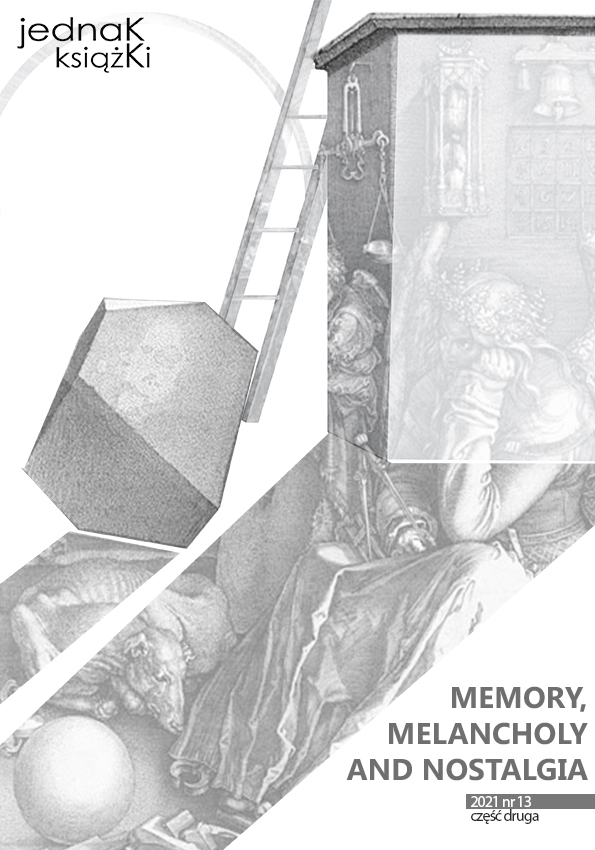Persisting Abscences: The Socio-political Dynamics of a Desaparecido in Post-dictatorial Brazil
DOI:
https://doi.org/10.26881/jk.2021.13.05Słowa kluczowe:
desaparecidos, political disappeared, cultural memory, Brazilian dictatorshipAbstrakt
The construction of memories following the last Brazilian dictatorship is as plural as the number of social actors implicated and as fluid as political circumstances can be. From investments on institutionalized forgetting to the creation of policies of memory, governmental initiatives affected the way society processed the acts of terror perpetrated by the military regime (1964–1985). The development of such initiatives, however, cannot be understood without accounting for the persistent struggle of victims’ relatives and human rights’ advocates. This paper aims to reflect on the Brazilian post-dictatorial mnemonic conflicts by observing how different levels of memory interacted with the political sphere in the process of coping with political disappearance. Drawing on relatives’ testimonies regarding the disappearance of Fernando Santa Cruz and the institutional mechanisms developed by different governments, this text intends to demonstrate how State-sponsored absences during the dictatorship are constantly being (re)constructed according to social and political circumstances of the present.
Downloads
Bibliografia
Arquidiocese de São Paulo. 1985. Brasil: Nunca Mais. Petrópolis: Vozes.
Assis Chico de. 1985. Onde está o meu filho? História de um desaparecido político. Rio de Janeiro: Paz e Terra.
Assmann Jan. 2008. Communicative and Cultural Memory. In: Cultural Memory Studies: An International and Interdisciplinary Hand-Book, 109–118. Berlin; Nova York: Walter de Gruyter.
Assmann Jan, Czaplicka John. 1995. “Collective Memory and Cultural Identity.” New German Critique 65: 12–133.
Atencio Rebecca. 2014. Memory’s Turn: Reckoning with Dictatorship in Brazil. Wisconsin: University of Wisconsin Press.
Brasil. 2014. Relatórios da Comissão Nacional da Verdade v. 1, 2, 3. Brasília: CNV.
Brasil. 2007. Direito à verdade e à memória: Comissão Especial sobre Mortos e Desaparecidos Políticos. Brasília: Secretaria Especial dos Direitos Humanos.
Brasil. 1995. Law 9.140. Online: http://www.planalto.gov.br/ccivil_03/Leis/L9140compilada. htm. Accessed May 1, 2022.
Brasil. 2011. Law 12.528. Online: http://www.planalto.gov.br/ccivil_03/_ato2011- 2014/2011/lei/l12528.htm. Accessed May 1, 2022.
Gallo Carlos Artur. 2012. “Do luto à luta: um estudo sobre a Comissão de Familiares de Mortos e Desaparecidos Políticos no Brasil. Anos Noventa.” Revista do Programa de Pós-graduação em História da UFRGS19 35: 329–361.
Jelin Elizabeth. 2012. Los Trabajos de la Memoria. Lima: Instituto de Estudios Peruanos, IEP.
Teles Janaina. 2014. “Melancolía y luto en los relatos de la dictadura brasileña.” Tla-Melaua, Revista de Ciencias Sociales 8 (36): 80–102.

 Uniwersyteckie Czasopisma Naukowe
Uniwersyteckie Czasopisma Naukowe





